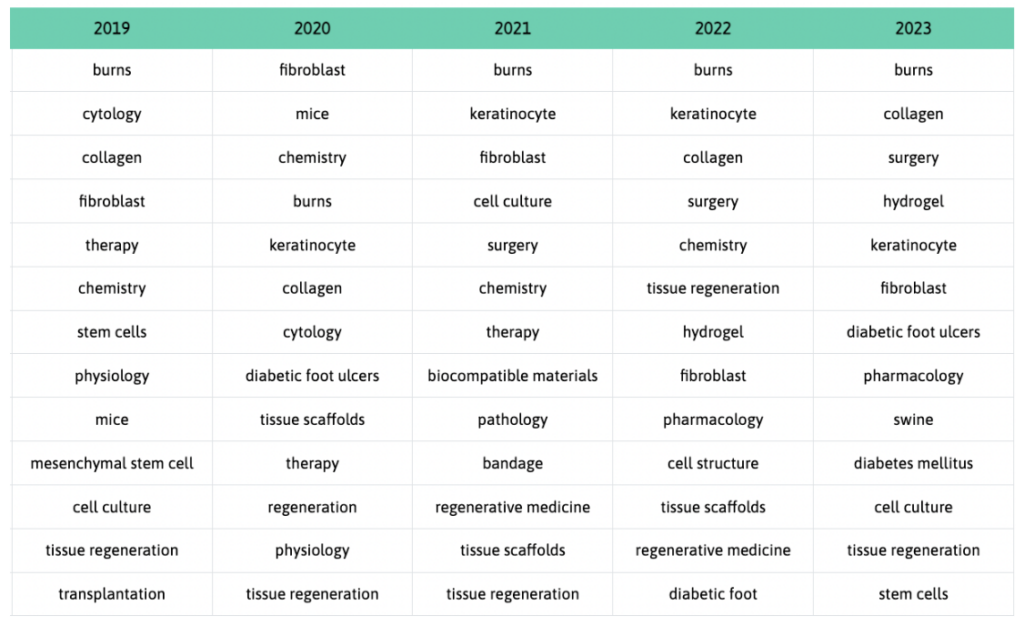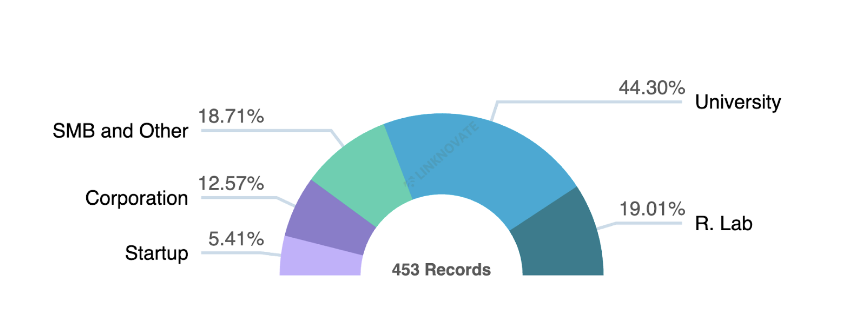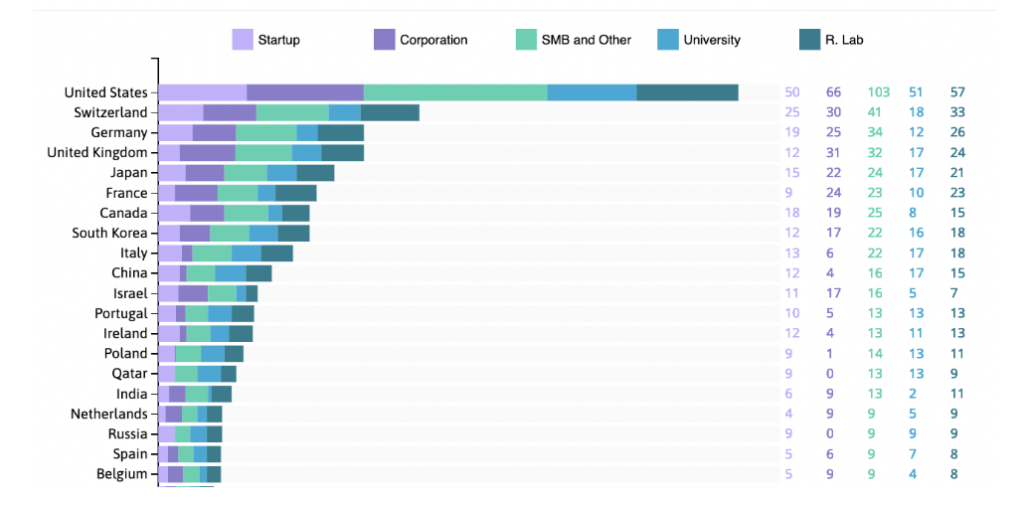In the realm of scientific innovation, artificial skin stands out as a groundbreaking development that blurs the line between biology and technology. Inspired by its biological counterpart, this remarkable creation holds the power to revolutionize fields like robotics, healthcare, prosthetics, and virtual reality.

In this article, we explore diverse applications of artificial skin in healthcare, shedding light on the transformative impact it is having on the sector and the startups and companies innovating this technology.
Wound healing
The skin is our body’s largest organ, offering protection, sensory perception and maintaining bodily functions. Experts have therefore developed an artificial skin, or e-skin, that replicates the protective and sensory capabilities of human skin.
Artificial skin has promising potential as a solution for those who have lost the ability to perceive sensation due to skin damage or are affected by extensive skin wounds.

RenovaCare Inc. is a biotechnology company that has developed a technology called SkinGun, which sprays the patient’s own stem cells onto wounds to promote healing. This approach eliminates the need for traditional skin grafts and can be used for several types of wounds, including burns and chronic ulcers.
CUTISS AG is a company focused on regenerative medicine, skin tissue engineering and skin pigmentation. Their solution denovoSkin is a customized bioengineered dermoepidermal skin graft. Using a small sample of healthy skin from a burned patient, skin cells are “cultured” in a laboratory and then combined with a hydrogel to produce new skin. The resulting is one millimeter thick, similar to the average natural dermis and epidermis. The significant advantage is that a postage stamp-sized sample can be made into a piece of skin the size of a placemat.

Integra Their flagship product, Integra Dermal Regeneration Template (IDRT), is a two-layer skin regeneration system whose outer layer consists of a thin silicone film that functions as the epidermis of the skin. It protects the wound from infection and controls heat and moisture loss. The inner layer is composed of a complex matrix of cross-linked fibers: this material acts as a scaffold for the regeneration of dermal skin cells, allowing regrowth of a functional dermal layer of skin. Once the dermal skin is regenerated, the outer silicone layer is removed and replaced with a thin graft of epidermal skin.
Avita Medical is a regenerative medicine company whose technology platform provides therapeutic solutions derived from the regenerative properties of the patient’s own skin. The medical devices work by preparing a Regenerative Epidermal Suspension (RECELL®), an autologous suspension composed of the patient’s own skin cells necessary to regenerate a healthy, natural epidermis.
Sensory restoration
In the last few years, researchers have made significant advances in haptic technology, which recreates the sense of touch. This technology has found applications in several fields, including virtual reality, telerobotics and computer simulations.
However, restoring tactile sensation for people with prostheses remains a persistent challenge. Exciting advances in artificial skin technology have the potential to transform the field of haptics.

Infinite Biomedical Technologies is a start-up specializing in the development of neuroprosthetic devices for sensory restoration. Their focus is on creating artificial skin and sensor systems that can provide tactile feedback and sensation to individuals with limb loss or sensory deficits.
GelSight is a start-up that has created a tactile sensing technology using artificial skin. Their sensors have a soft, compliant surface that mimics human skin and can be used for various applications, including robotic manipulation, prosthetics, and virtual reality.
Drug discovery artificial skin
In the field of drug discovery, the search for safe and effective drugs relies on extensive testing and evaluation of potential compounds. Artificial skin has become a tool to offer researchers a way to mimic the complex interactions between drugs and human skin. By replicating the characteristics and functions of real human skin, artificial skin models provide a platform for evaluating the toxicity, absorption and efficacy of substances.

MatTek Corporation is a biotechnology company that specializes in developing and producing in vitro models for toxicity testing and drug discovery. They offer advanced cell-based assays and tissue models that mimic human organs such as skin, respiratory epithelium and ocular tissue. Their EpiDerm model replicates the characteristics of human skin, providing a platform to assess toxicity, irritation and absorption of substances. It is used in the pharmaceutical, cosmetic and chemical industries for safety and efficacy testing.
Mimetas is a biotech start-up that specializes in organ-on-a-chip technology. Their OrganoPlate platform includes artificial skin models that replicate the complex interactions between skin cells and drugs. This technology enables the screening of drug candidates and the prediction of their effects on human skin.
Artificial skin has immense potential to revolutionize healthcare. Its applications in wound healing, sensory restoration and drug discovery pave the way for improved treatments, enhanced prosthetics and more precise drug development processes. With continued innovation and research, artificial skin promises to transform medical care and improve the lives of countless people.
[/vc_column_text]




